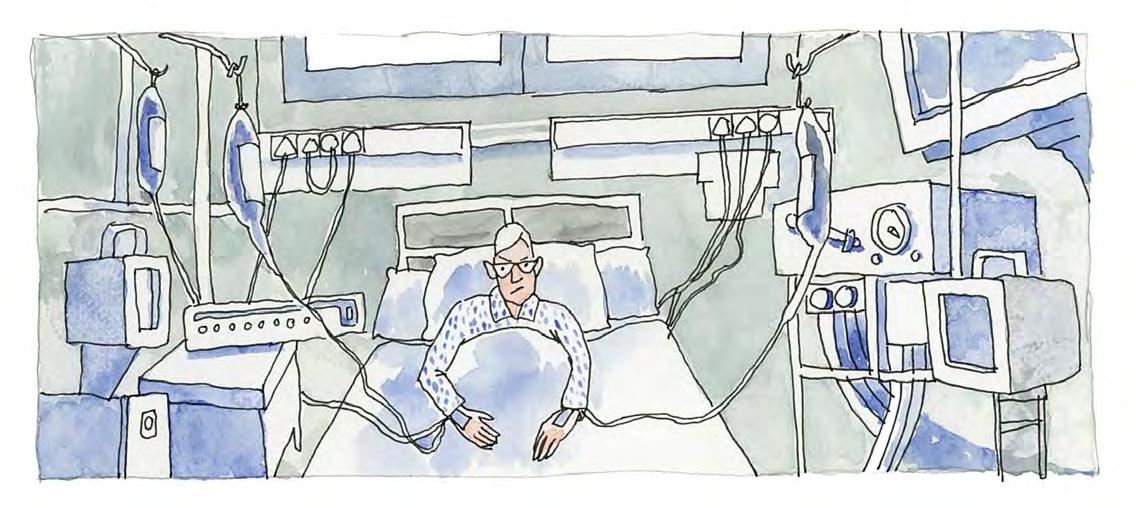
10 minute read
Dad had two very different faces
However, no two As a Chaplain, walking alongside someone amid their grief is one journeys are the same, of the most sacred privileges. However, no two journeys are the same, and often grief can be complicated. In my experience, no story and often grief can be better illustrates this than my father-in-law’s death. complicated. We were sitting at the dinner table one evening when we received a call from my mother-in-law saying that Dad wasn’t feeling well. He was running a fever, and she would take him to urgent care. We looked at each other in dismay. They had gone to great lengths to buck the safety protocols and concerns around COVID-19, so it wasn’t a complete surprise that he was now sick. We assumed it was COVID-19 and worried that his poor health would only add to the seriousness of the illness. We told her we’d be praying for him and asked her to let us know what urgent care said. A few hours later, we learned it was not COVID-19 but an infection. They had put him on antibiotics and sent him home.
About a week later, he was still feeling poorly and feverish, so they returned to urgent care. He was immediately rerouted to the head of the emergency department because he was septic. Because of COVID-19 and limited hospital visitation, only Mom could be with him. Truthfully, even though she wasn’t supposed to be permitted, Dad was so exhausting and demanding of the staff that they allowed her to stay to keep him more compliant. Then, while he was there, he suffered a stroke. It affected his speech, lucidity, and mobility. We started preparing our children and began talking about how sick Pawpaw was. During the next 24 hours, Dad had several more strokes. He would have periods of lucidity and used this time to make phone calls and speak to friends, family, work buddies and his grandsons. Soon after, they transferred him to a more significant medical center in our city which allowed my husband to get involved. We were able to visit Dad and hear directly from the doctors. My husband, a hospice chaplain, asked the hard questions that Mom wouldn’t even consider. I listened with a broken heart as he asked about best-case scenarios, quality of life, and hospice.
Advertisement
The doctor almost seemed surprised to be asked these questions so quickly. He said that “if” he regained consciousness, he would have some deficits and limited mobility. My husband, without blinking, sat They were clinging his mother down and told her, “He wouldn’t want to live like that, and we need to move him to hospice.” to slivers of hope and When my own dad died, I was only 26, and my brother was 39. I was options that I didn’t living out of state, and he was local. My mom and oldest brother were believe would change there daily, and I could only drive up weekly. They assumed the role of decision-makers and interpreters. Every time I visited, I felt like we the trajectory of my were heading toward death, but they didn’t seem to feel that way. dad’s illness. They were clinging to slivers of hope and options that I didn’t believe would change the trajectory of my dad’s illness. My dad died in an ICU rather than in the comfort of his home or a hospice. I still regret that so much. The outcome would have been the same, but the comfort, care, and support could have been so much better and easier. My mother-in-law consented to hospice care, and Dad was transferred the following day. He had about 36 hours at the Hospice House before he died. They made sure he was clean, calm, and comfortable. They even came in and shaved him. He had this beautiful room and plenty of comfortable seats: no fluorescent lights and constant beeping from machines. Most importantly, it offered friends and family a chance to come and say goodbye. Three months after Dad’s death, we held two separate and very different services for him. One was a private graveside service where my husband officiated. The second was an open public service held at an outdoor rodeo arena officiated by Dad’s pastor and a good friend. We invited folks to write stories about Dad on cards for Mom to keep. They flooded her with great stories of Dad’s personality, care, generosity, support, and goodness. She found much strength in that and constantly wanted to share those stories with my husband and his sister. Unfortunately, the stories did not land in the same way. The reality was that Dad had two very different faces. Like most other farmers, he spent the majority of his time working. He loved his work; that is where his heart and mind always were. He gave his work all the best parts of himself. When it came to the father’s role, he was either absent or an extremely harsh disciplinarian.
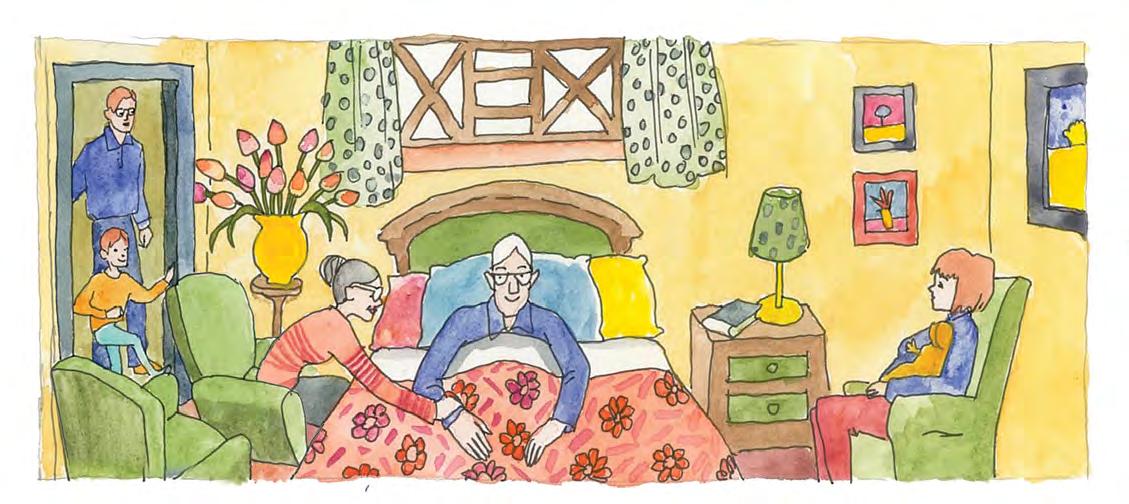
Hearing people from Dad’s community speak about how generous, caring, and available he was to them was difficult for my husband. It wasn’t hard to believe that was true for them. However, that was not the person that my husband knew. Story after story was shared about Dad to offer comfort. But I watched and listened as those stories opened wounds in the people he should have cared about most.
Paula was thoughtful. “Grief is universal, but for each of us, it is experienced in our own way. It is often complicated and requires the caregiver to manage multiple roles to ensure that each person receives appropriate care.” Amy nodded. “I agree, but we all need a haven that allows space for the griever's raw, unhindered truth. A judgment-free space that doesn’t tell us how to grieve. A comforting presence able to embrace and validate even the hardest emotions.”
The story had moved Paula. She thought about her brother’s death and how it had affected her. “How our past experiences intertwine with our current reality shapes how we understand and feel about what is happening. There are so many ways that our past experiences shape how we find coherence in our lives. We saw how the death of Dana’s father featured in how she experienced her father-in-law’s death. Her husband’s difficult history with his father profoundly shaped his grief journey, made all the more challenging by the very different stories shared by all of his father’s friends and colleagues.” Joel had a question pressing close to his heart. “Is it possible to love and give care even in a state of brokenness?” Amy nodded. “Well, Dana’s husband was present for his father in his dying journey even though it had been a difficult relationship. That showed love and care, and Dana was able to provide him with a haven to be truthful even in his grief, free of judgment.” Paula had been taking down notes. She asked, “Do you mind if I write a theological reflection out of our conversation?”
Joel and Amy nodded and exclaimed in unison. “Please do!” After their goodbyes, Paula took out her computer to type up her reflection.
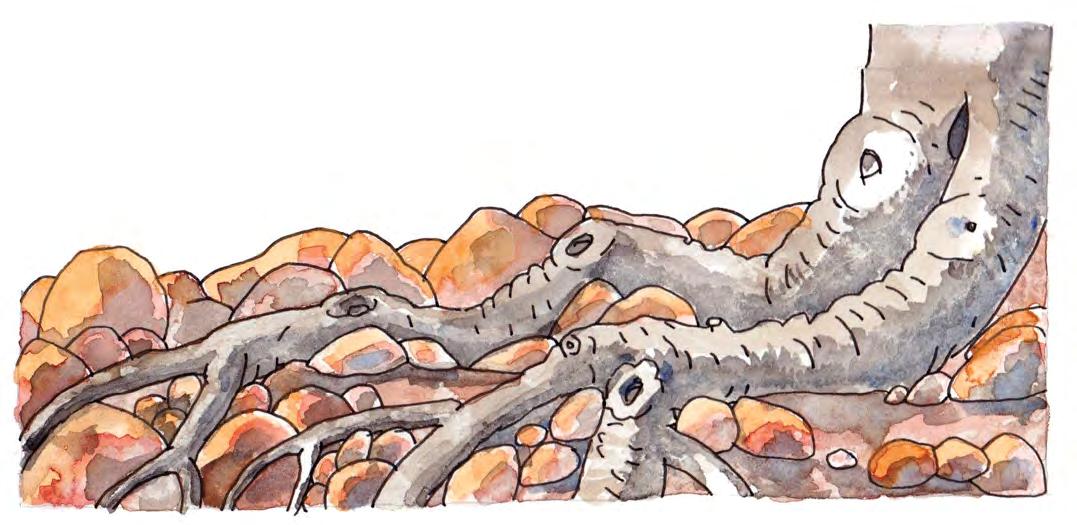
“For everything, there is a season” – Drawing meaning from Dana’s story
It is challenging for caregivers to manage grief when they accompany a loved one through the seasons of death, dying and transitioning to the eternal. But God grants us life and seasons in which to labor, grow and flourish until we return to God, our maker. The dying of a loved one is an inescapable experience. It may awaken all kinds of anger, hurt, grief and regrets that shape how we understand and respond.. We are never alone on this journey
“For I am sure that neither death nor life, nor angels nor rulers, nor things present nor things to come, nor powers, nor height nor depth, nor anything else in all creation, will be able to separate us from the love of God in Christ Jesus our Lord" Romans 8:38-39 (NRSV). “God makes all things work together for good” (Romans 8:28-NRSV). Despite his guilt and anger, the son who felt harmed by his relationship with his father could still give love and support to his family, father and those entrusted to his care as a hospice chaplain. Dealing with regrets and the burden of guilt
Behind the feelings of regret are assumptions and expectations that we should have done something differently. Self-judgment produces the terrible burden of guilt. Yet, relinquishing the tendency to judge ourselves may open the door to new birth, allowing God to awaken new realizations and possibilities. We can seldom change a situation, but God can bring forth a new way forward. God encourages us to “Forget the former things; do not dwell on the past. See, I am doing a new thing! Now it springs up; do you not perceive it?” (Isaiah 43:18 -19). Trauma specialists ask us to step away from judgment and into curiosity. We can do that for ourselves, as well. Care for the Caregiver
Dana's story reminds me of the importance and need for caregiver care and self-care and a safe, nonjudgmental haven shaped by love and patience, allowing grievers to tell their raw truth. In this space, the believer can bring the healing presence of Christ, loving self as a neighbor (Luke 10:27) and bearing one another’s burdens (Galatians 6:2).
Questions for reflection
• As I read the story, what feelings emerge when I am called to be a caregiver for my loved ones during their season of death and dying? • When I look at my own life, what faith resources have helped me release grief or transform hurt into healing? What do I still need?
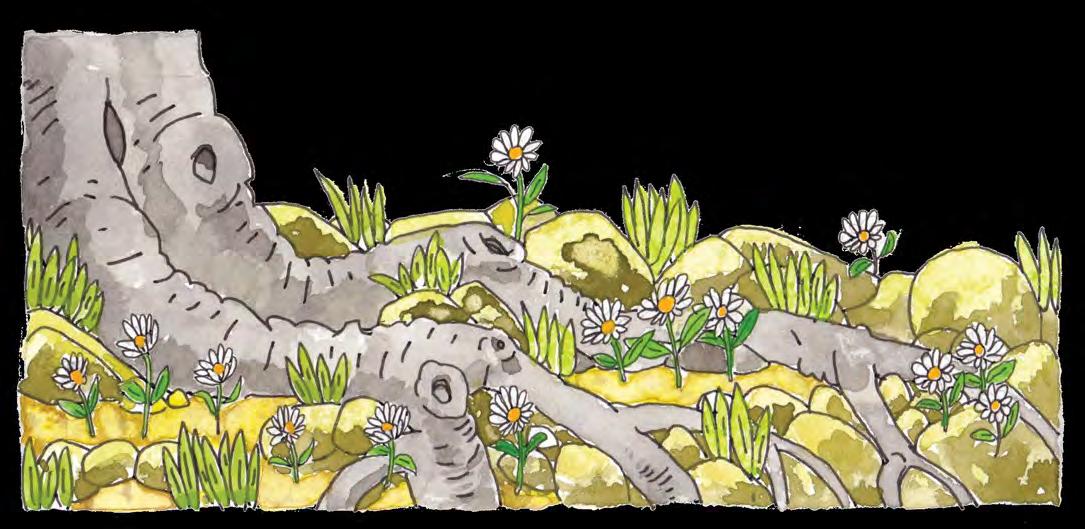
After Paula finished her typing, she sat back in her chair. She was so grateful for Amy and Joel and for the way they were all grappling with these themes. As she glanced over the words on her screen, she felt eager to share what she had written. When she later emailed her reflections to them, a deep sense of gratitude filled her as she reflected on how blessed they were to have this time to share their stories, reflections and questions. This story had helped her find comfort in her own grief.
People have names
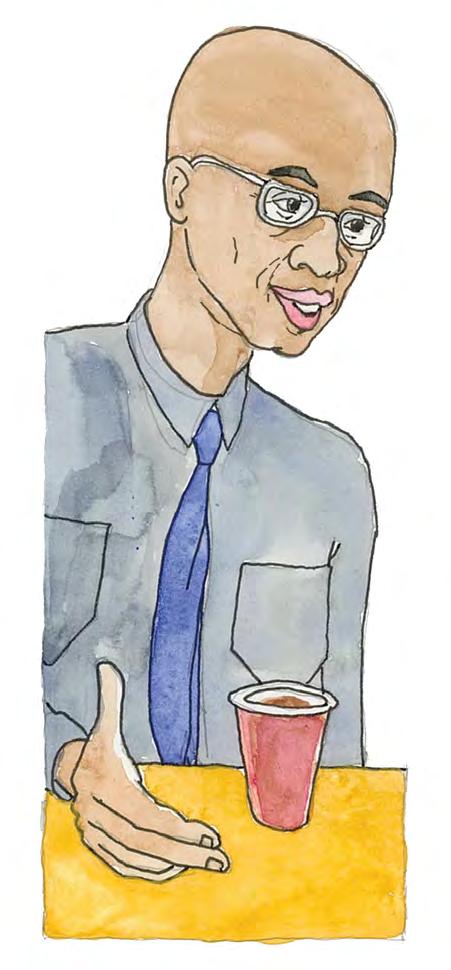
Zachary was meeting with his friend Lenny and three pastors from the district. In seminary, he learned that many pastors struggle with feeling isolated and unsupported and how important seeking input and companionship from others could be. These three pastors had been solid and wise colleagues during his time in the area. As a young associate pastor, he struggled with some of his congregation’s social issues. He knew that he was idealistic and wanted quick answers and results at times, but things had become tough since COVID-19 had ravaged his community. He had asked Trish, a retired pastor, to join him for this breakfast club meeting. She was a wise elder who had much experience and he looked to and relied on her input. Her work in social justice and congregational strengths would be invaluable. Dennis was a mid-career pastor who was burnt out and had made mistakes in dealing with the trauma stories of others. Zachary was hoping to learn from him. He remembered Dennis as a young pastor and how passionate he had been before. What had changed? He was sure that Dennis could share some of his experiences. He had also invited Lisa, a dynamic pastor who had traveled and had spent some time in South Africa. He wanted to hear her input on the social struggles there and how she had seen the church respond.










